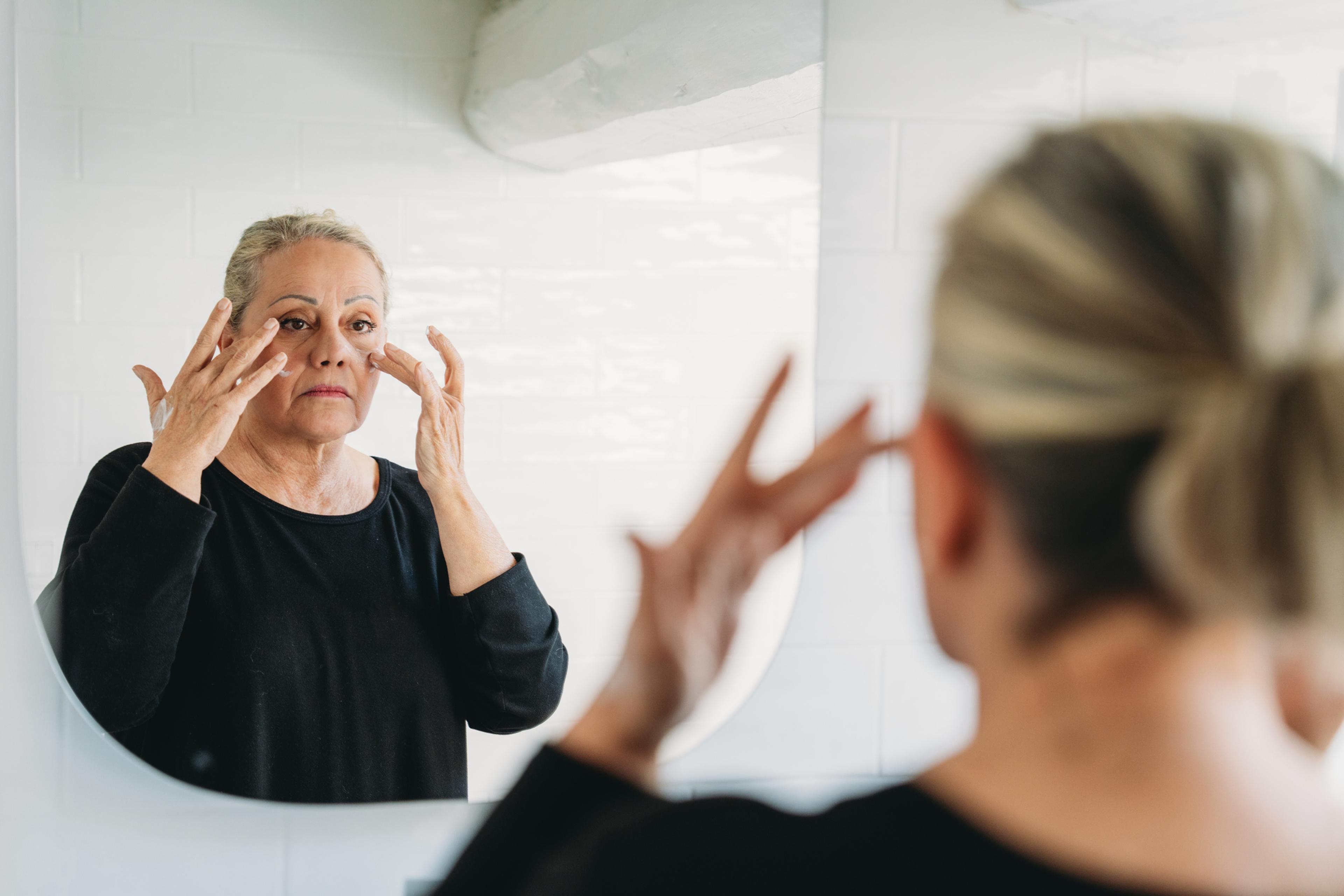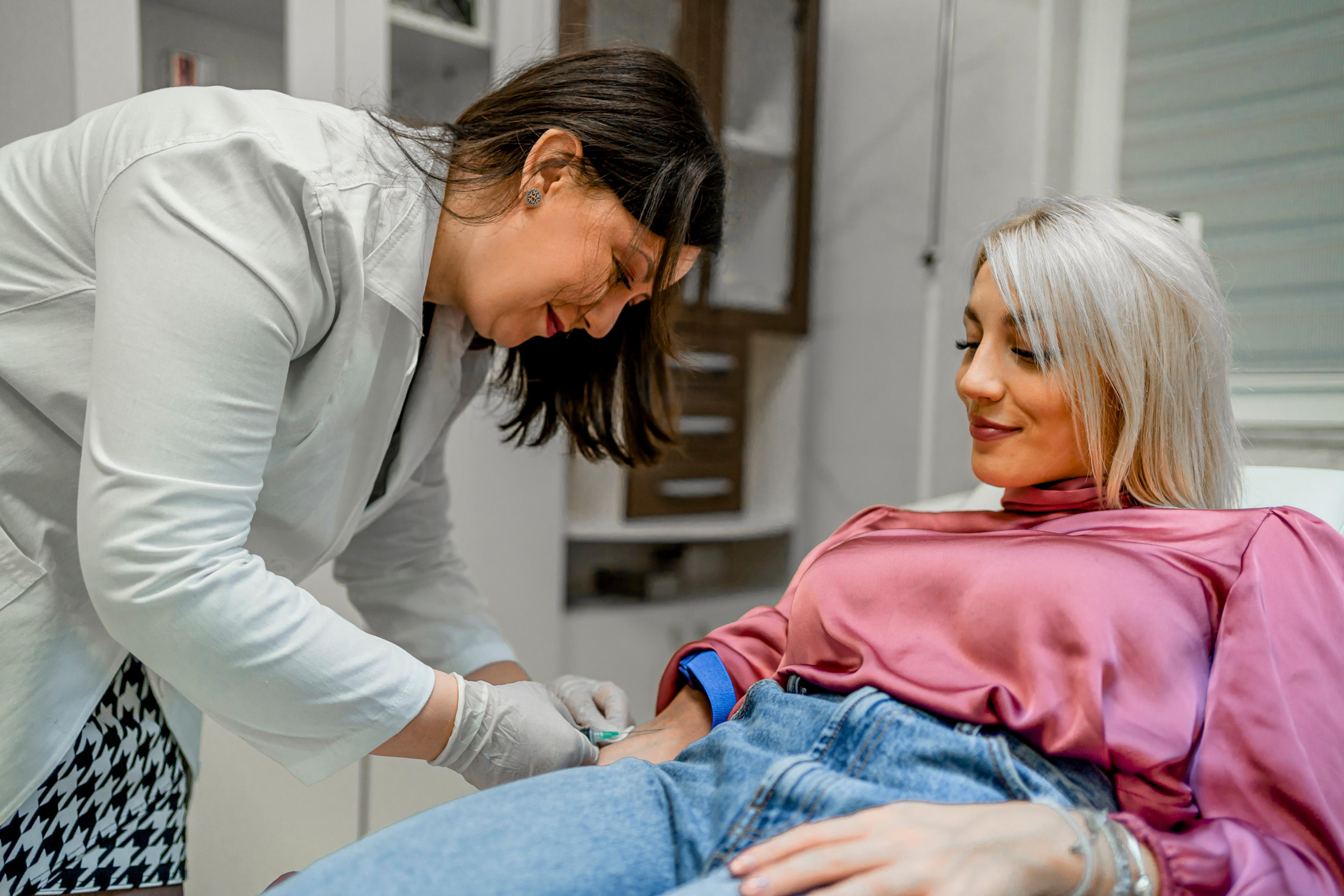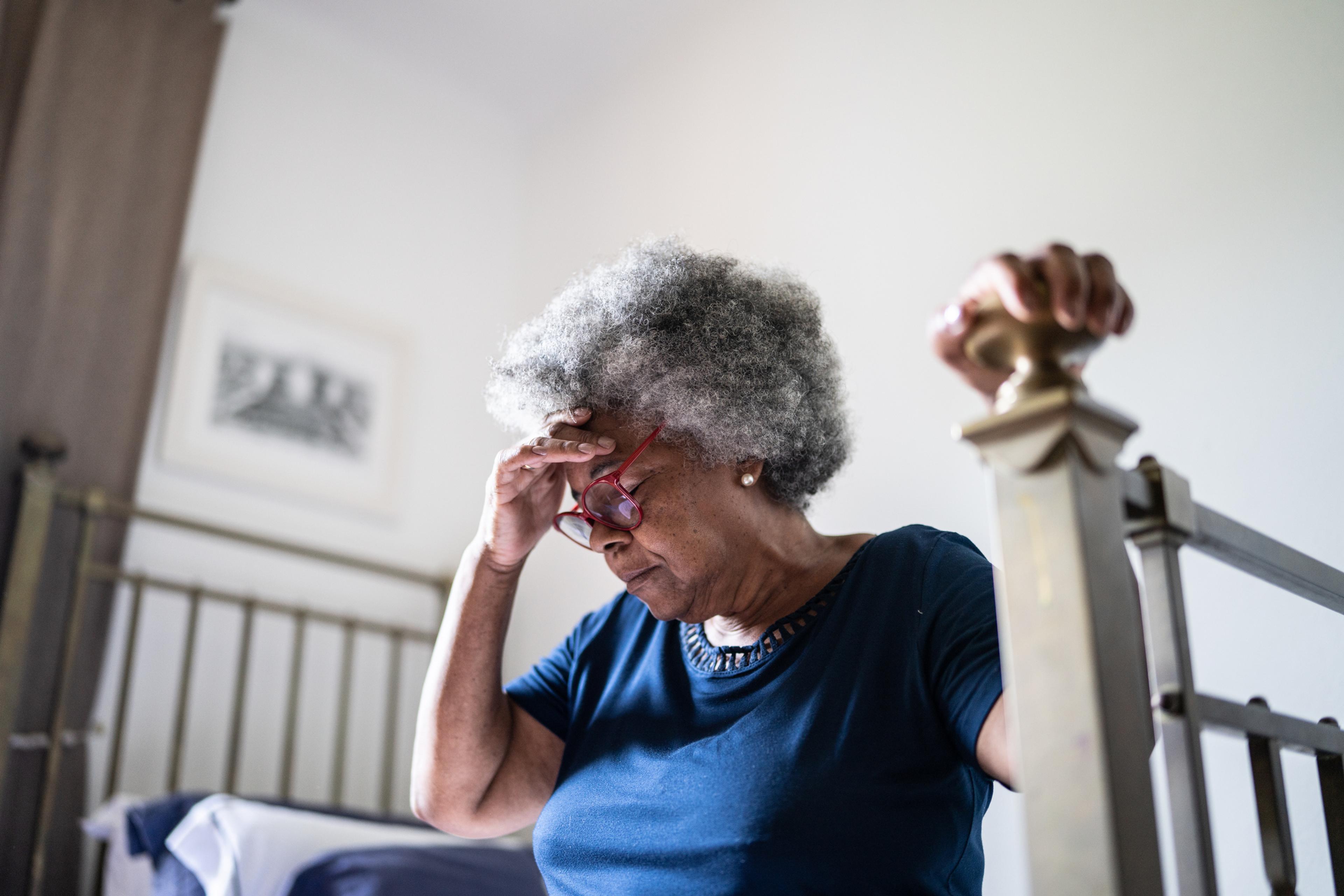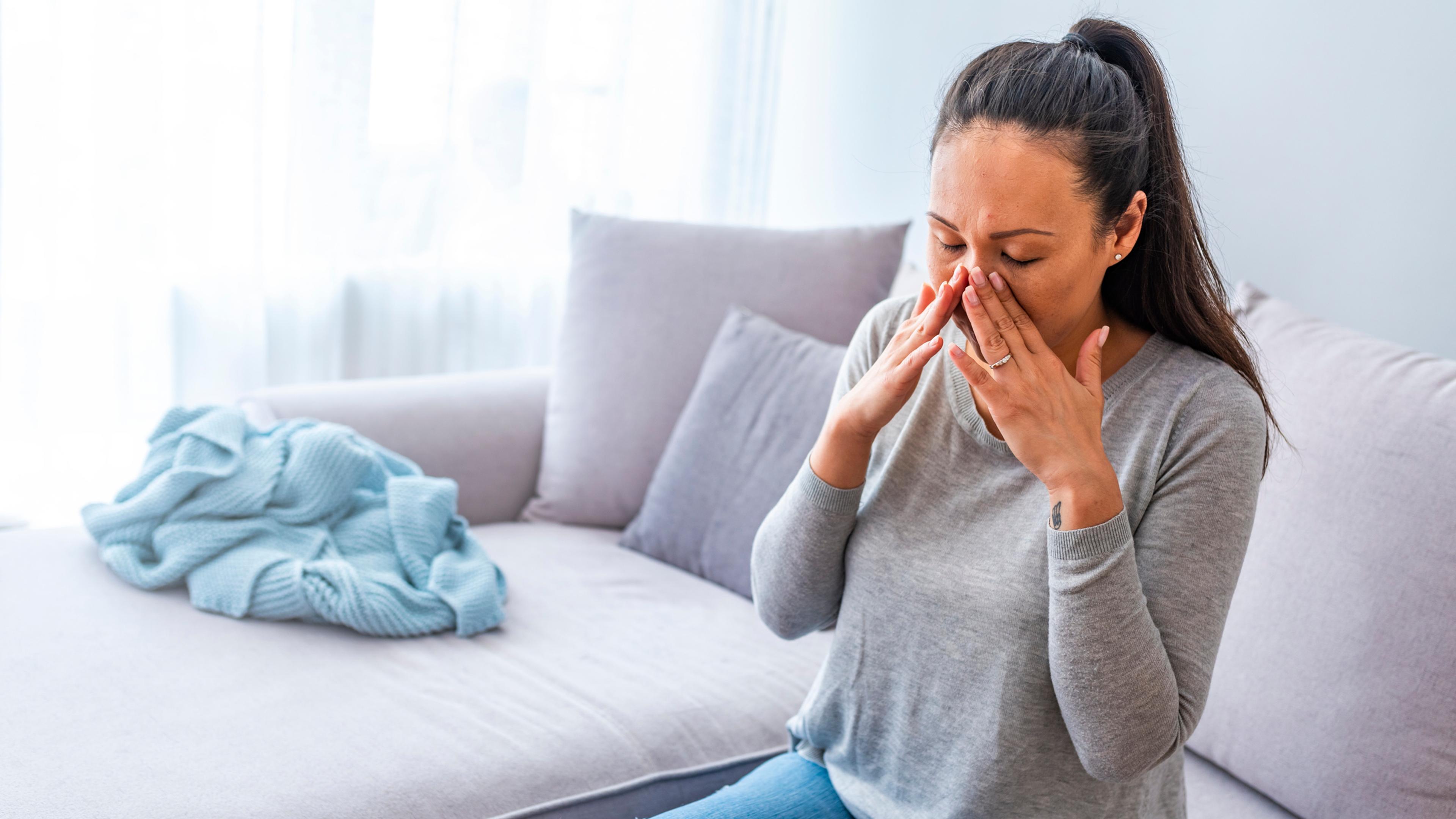Surprising Symptoms of Menopause

Lindsay Knake
| 4 min read
Lindsay Knake is a brand journalist for Blue Cross B...

Key Takeaways
- About three-quarters of women experience menopause symptoms, which can include hot flashes and sleep problems.
- Menopause can also affect your skin, eyes and hair in surprising ways.
- To manage symptoms that interfere with your daily life, talk to your primary care provider.
About 75% of women experience symptoms of menopause.
You probably know hot flashes, sleep problems and weight gain are common signs, but this hormonal change can cause many different symptoms. Here is a look at surprising symptoms of menopause and ways to manage them.
Symptoms of menopause
Menopause involves a change in women’s hormones; estrogen levels drop, and they can no longer become pregnant. The transition to menopause, called perimenopause, can take several years and often starts in a woman’s mid-40s. A woman has gone through menopause when she has not had a menstrual period in 12 consecutive months; the average age of menopause is age 52.
The change in hormones causes many symptoms, including:
- Hot flashes
- Irregular periods
- Sleep problems
- Night sweats
- Vaginal dryness
- Weight loss or gain
- Mood swings, irritability, anxiety or depression
- Brain fog
But there are other symptoms that you may not be aware of. Here is a look at five surprising symptoms of menopause.
Urinary urgency
Going to the bathroom more frequently or an increase in urinary tract infections (UTIs) can be part of perimenopause and menopause, according to Harvard Health. The drop in estrogen levels thins the bladder lining, which can increase urinary frequency or incontinence. Around 40% of women experience incontinence, according to the National Menopause Foundation (NMF).
Additionally, estrogen manages beneficial bacteria in the urethra, and lower estrogen levels can allow bad bacteria to flourish and lead to UTIs.
If you have problems with urinary urgency or UTIs, talk to your primary care provider (PCP). The American Urological Association recommends vaginal estrogen therapy to help prevent frequent UTIs.
Dry skin
The loss of estrogen can also mean your skin holds less water, making your skin feel dry and itchy, according to Harvard Health.
Use a mild cleanser and moisturizer with ingredients such as hyaluronic acid, according to the American Academy of Dermatology (AADA). Applying moisturizer immediately after getting out of the shower, during dry weather and as needed can help reduce itchiness and discomfort.
Wear sunscreen with 50 SPF daily to reduce the risk of dark spots and to prevent further thinning of the skin. If dry skin persists, talk to your PCP or a dermatologist.
Acne
Acne and pimples aren’t just an issue for teenagers – women experiencing perimenopause and menopause can also deal with them, especially if they had acne as a teen, per the AADA. The drop in estrogen leads to an altered ratio of androgen in your body, which can cause acne most commonly on the chin, jaw and neck.
About one-quarter of women in their 40s have adult acne as they go through perimenopause and menopause, according to the NMF.
Using a cleanser with salicylic acid can help treat mild acne but avoid products that dry your skin. Talk to your PCP or a dermatologist for more stubborn or severe acne.
Dry eyes
Along with skin, your eyes can become drier during menopause. Your body may not produce enough tears to keep your eyes properly lubricated, causing discomfort, blurred vision and difficulty with contact lenses, according to the Mayo Clinic.
About 60% of perimenopausal and menopausal women deal with dry eyes, per the NMF.
Using over-the-counter eye drops or a humidifier at home can help relieve mild symptoms, according to the National Eye Institute. For more severe symptoms, talk to your PCP or optometrist.
Hair growth
While hair loss on your head is a symptom of menopause, hair growth on your upper lips, chin and cheeks is also common, according to the Mayo Clinic. Sometimes this means more fine hairs, or peach fuzz, on your cheeks or dark hairs on the chin.
Dermaplaning and plucking are easy ways to get rid of any unwanted hair at home. If you prefer a longer-term solution, talk to your PCP or dermatologist about options like laser-hair removal.
Hormone replacement therapy may help with some or many of the above symptoms. This replaces lost estrogen through a pill, patch, ring, spray or gel. This treatment may not work for everyone; talk to your PCP about options for symptoms that interfere with your daily life.
Living a healthy lifestyle, including exercising regularly, eating a nutritious diet and getting enough sleep, can help with menopause symptoms.
Image: Getty Images
Related:





